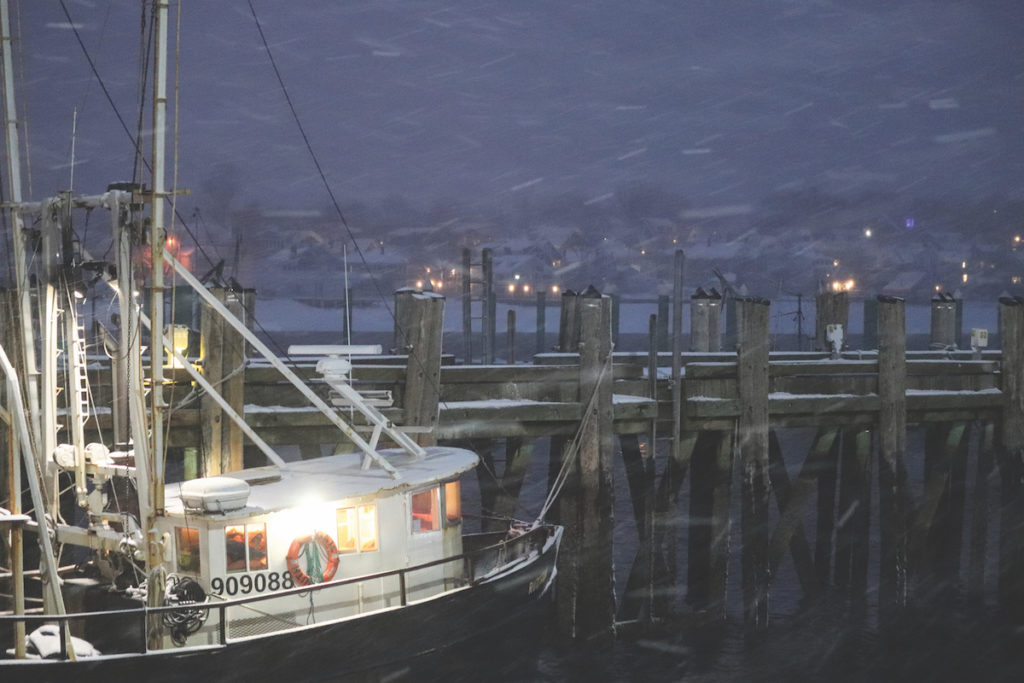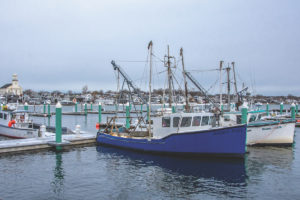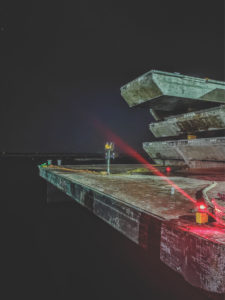
PROVINCETOWN — The Public Pier Corp., which operates MacMillan Pier, is proposing fee hikes for this year of around 50 percent to commercial fishermen and recreational businesses like whale watch companies. The pier dockage fees would nearly double by 2023.
In revised harbor regulations unveiled on Feb. 4, the Pier Corp.’s proposed fee structure for large commercial fishing vessels (50 feet long or larger) includes an increase from $44.47 per foot to $65 per foot this year. The fee would go to $85 per foot by 2023.
For smaller commercial vessels, the fees would go from $61.73 a foot to $95 this year and to $120 by 2023.
“I don’t understand the increase, and I don’t know how any new business can afford this,” said David Young, a lobsterman. “It’s putting a death grip on everything. I don’t think we’re going down a good path.”

Revising the harbor regulations has been in the works for the past three years, according to Scott Fraser, a Pier Corp. board member. The management structure has been totally redone, with the long-time harbormaster-pier manager’s job divided into three separate positions. Physical upgrades to the pier have included the addition of a wave attenuator and repairs to the floating docks, he said. Now comes the last part, the new fee structure, which is subject to a public hearing that continues on Thursday, Feb. 11 at 3 p.m.
“I’d like to focus on the rates and the realities we face together,” Fraser said.
The reality, he said, is that MacMillan Pier is getting older and the cost of maintaining it is increasing. Repairs to the electrical system and other facets of the wharf will cost $300,000 to $400,000 a year for the next few years, Fraser said.
Only two sources of income exist, he said, tenants and taxpayers.
“So, obviously, someone has to pay an increase,” Fraser said. “Who will pay going forward, the tenants or the taxpayers?”
Tenants have not faced “a real price increase” since 2005, he said. Cost-of-living increases were imposed, he added, raising the user fees by about 10 percent in the last 10 years.
But in that same time span of 10 years, Provincetown property taxes have gone up 18 percent, he said.
Town meeting voters have chipped in $2.3 million for renovations and improvements to the pier, Fraser reported.
Steve Milliken, who owns the Dolphin Fleet Whale Watch company that occupies three floats on MacMillan Pier, brought his lawyer to the Feb. 4 Pier Corp. board meeting.
By 2023, Milliken said, with higher embarkation fees, passenger surcharges, and dockage fees, he will be paying $91,500 for each of his three floats.
His embarkation per-passenger fee will go from 75 cents to $2 a passenger; a float fee will rise from $10,350 to $15,000; and a large-vessel passenger surcharge will increase from $75 a person to $95 a person by 2023. The surcharge is an annual fee based on the capacity of the boat; for a 300-passenger boat, the fee goes from $22,000 to $28,000 a season.
“I don’t know about you, but $91,000 for each float is not reasonable,” Milliken said.
His attorney, Seth Holbrook of the Boston law firm Holbrook & Murphy, said the passenger embarkation fees and per-person surcharge are violations of the U.S. Constitution.
“My research shows … the municipality cannot charge a tonnage tax,” said Holbrook. “Other courts have ruled it’s a duty on tonnage. Even though it’s passengers, it’s tonnage.”
Tonnage taxes fall under the jurisdiction of the federal government, not the town, he added.
The Pier Corp. board members did not respond to Holbrook or to other public comments.
“This just seems like a gut punch after a hell of a year,” said Kathleen Burns, who owns the Bay Lady, a schooner that takes passengers on cruisers around the harbor.
Vaughn Cabral, who owns a fishing charter, the Cee-Jay, said he had to operate at half capacity to comply with Covid-19 safety guidelines and could fill only 21 of his 42 seats.
“And I was only full 17 times out of 137 trips last year,” Cabral said.
Other proposed new fees include charges for parking, even for people who already pay for dock space. Pier Manager Doug Boulanger said the parking fees will be discussed on Feb. 11. This won’t just affect boat owners. The new regulations propose to charge taxis $200 for the privilege of waiting for ferry passengers. Pedicab drivers would be charged $75 a season.


